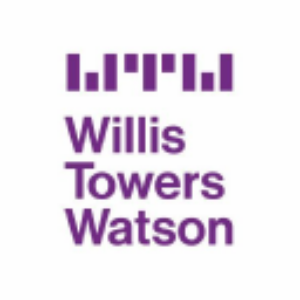Investment industry not learning from experience
Research from Willis Towers Watson's Thinking Ahead Institute highlights that investment organizations are failing to learn from past experiences, particularly in enhancing investment committee (IC) practices. The study advocates emulating the aircraft industry's learning culture to improve decision-making and governance. It proposes a best-practices checklist for ICs and emphasizes the importance of strong leadership and strategic focus. The report suggests that adopting the Total Portfolio Approach (TPA) can drive innovation and efficiency, especially amid current pressures.
- The research offers a best-practices checklist for improving investment committee outcomes.
- Adopting the Total Portfolio Approach (TPA) can enhance decision-making and innovation.
- Investment organizations are not learning from past experiences, potentially hindering their growth.
Insights
Analyzing...
ARLINGTON, Va., Aug. 05, 2020 (GLOBE NEWSWIRE) -- Investment organizations are not learning from their experiences when it comes to improving investment committee (IC) practices and governance, according to new research from Willis Towers Watson’s Thinking Ahead Institute, a not-for-profit member group. The research, entitled Going from good to great, identifies the aircraft industry’s structured-learning environment as one to emulate because learning from experience and errors has increased safety enormously and given birth to innovations such as checklists to improve decision-making and dashboards for tracking mission-critical issues.
“The aircraft industry ensures the safety of billions of people through learning from experience,” said Roger Urwin, cofounder of the Thinking Ahead Institute. “Investment committees can likewise provide for the financial safety of billions of people by applying best-practice frameworks to their context. In doing so they will be better placed to tackle the challenges that lie ahead such as systemic risks, performance pressures, complexity management, increased regulatory influence and the growing influences from multiple stakeholders.”
The research explores best-practice governance for ICs and sets out a best-practices checklist which all types of ICs can follow to improve their outcomes. For more ambitious and well-resourced organizations, it suggests the adoption of the Total Portfolio Approach (TPA) to introduce more dynamism and focus on goals when making decisions.
“Large asset owners are using advanced best-practice governance to unlock the complexities of modern investment, notably when dealing with ESG considerations, and employing TPA helps the integrated thinking required. We believe that this crisis will accelerate the adoption of TPA and, in time, it will become one of the defining innovations of this period,” added Urwin.
The paper sets out 10 building blocks investment committees can use for more successful outcomes, including strategic focus, an effective chairperson and strong culture.
“Retaining a strategic focus is vital for effective board governance and doubly important for investment committees, where there is often a temptation to get lost in the weeds. Key to this discipline is having an effective chairperson. This leadership role is crucial in terms of setting and managing overall strategic direction, facilitating the contributions from all committee members and extracting all the benefits of a strong culture,” said Urwin.
The Institute suggests that taking an IC from good to great outcomes—acknowledging the confines of resources and time—is eminently doable with strong leadership and an ambitious strategy that identifies key areas where ICs can make the biggest gains:
- It is critical to get the right people on the IC ‘bus’, especially in the areas of competency, teamwork and accountability.
- Opportunities for improved efficiency and collective intelligence can be exploited, notably: extending the chair role; building IC teamwork; pinpointing its comparative advantages; restyling the IC process; and developing a richer culture.
- This crisis presents opportunities such as exercising more innovative thinking and practice when conducting IC meetings, and applying more innovative thinking to future challenges.
“Could investment committees and boards set their sights higher? Absolutely they could. The stakes are too high for them not to take this path. And these current pressurized circumstances make such steps attractive right now,” said Urwin.
About the Thinking Ahead Institute
The Thinking Ahead Institute was established in January 2015 and is a global not-for-profit investment research and innovation member group made up of engaged institutional asset owners and service providers committed to mobilizing capital for a sustainable future. It has 45 members around the world and is an outgrowth of the Thinking Ahead Group which was set up in 2002. Learn more at www.thinkingaheadinstitute.org.
About Willis Towers Watson
Willis Towers Watson (NASDAQ: WLTW) is a leading global advisory, broking and solutions company that helps clients around the world turn risk into a path for growth. With roots dating to 1828, Willis Towers Watson has 45,000 employees serving more than 140 countries and markets. We design and deliver solutions that manage risk, optimize benefits, cultivate talent, and expand the power of capital to protect and strengthen institutions and individuals. Our unique perspective allows us to see the critical intersections between talent, assets and ideas – the dynamic formula that drives business performance. Together, we unlock potential. Learn more at willistowerswatson.com.
Media contact
Ed Emerman: +1 609 240 2766
eemerman@eaglepr.com







